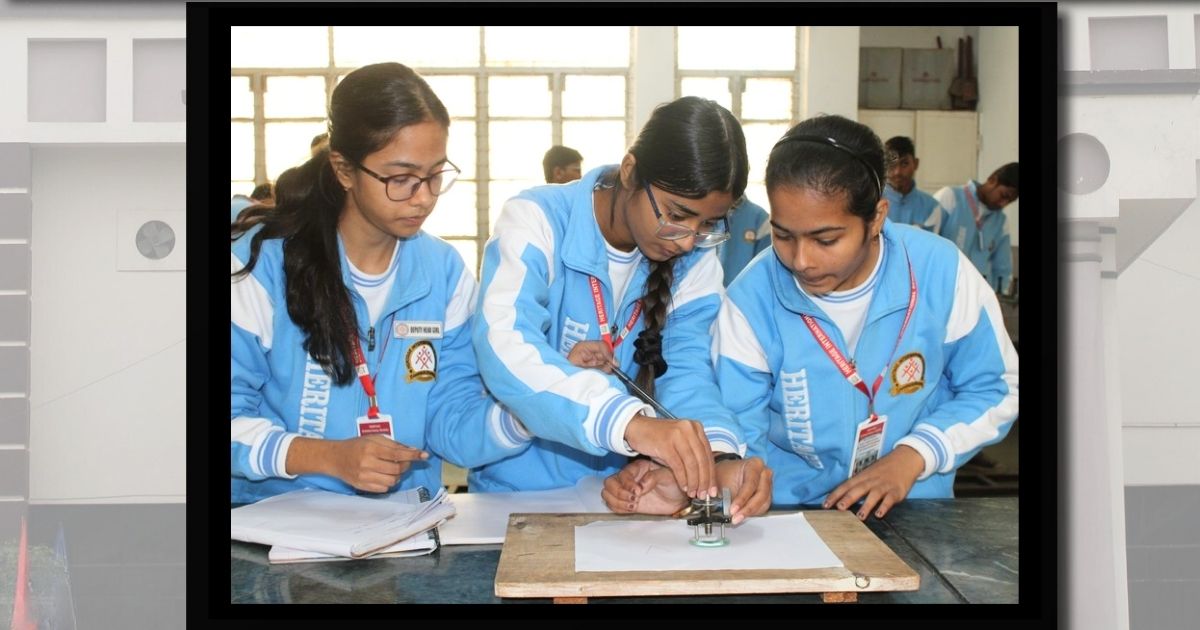
- On August 2, 2025
- By admin
- Tags best English medium school, Best English medium school Aligarh, best English Medium School in Aligarh, English medium school in Aligarh, Heritage School, Holistic development school Aligarh, Modern facilities English school, Quality education Aligarh, Top CBSE School in Aligarh
Let’s move towards real education with studies for our children
Dear Parents, Stop Telling and Persuading Your Kids to Study
Let’s admit it. We have a national obsession with testing. We are obsessed with tests of all types, with the data they provide, and with the judgements we can make based on the outcomes. As a nation, we are test-crazy! (It would be better if we had a national obsession with assessment, but that’s a different discussion for a different time. Tests and assessments are not synonymous.)
But what if some traditional studying methods are actually part of the problem? What if, in the process of studying, some of our students are making inaccurate assumptions about the depth of their learning? Could it be that the process of passively “studying” and reviewing material leads students to overestimate their knowledge and competence? The answer to all these questions is a resounding yes. Not sure you’re with me? Keep reading; I’ve got the proof.
Have you ever noticed, during your own episodes of studying and learning, that it can be very easy to overestimate your knowledge or comprehension? Have you ever studied diligently for a test only to experience the dreaded “Uh-oh—I don’t know this stuff as well as I thought” moment when it came time to actually take the test? If so, you are not alone.
It happens that what you have experienced is, as some researchers call it, an Illusion of Competence. That is, when critically reviewing and “studying,” the ease at which we can recall, recognise, or define information leads us to a false sense of security in our knowledge. If studying is easy, our confidence is high. The problem is that this confidence may be an illusion. Why might this be the case? Keep reading; it gets really fascinating.
Well before we dive into some of the academic research, allow me to illustrate with a real-world example. Think back about a teenager you know—perhaps one who is ready to take the test to get their learner’s permit for a driver’s license. You may find in most cases, students are provided with a manual or brochure that outlines some of the laws, topics, and information they need to know. So, they go about “studying” for the test. Let’s say they read the brochure, they highlight and underline key points, and they reread the material they’ve previously highlighted. But even after all this studying, many students fail to pass the exam. Why might this be the case?
However, it is argued that the traditional study techniques of reading, highlighting, and rereading previously highlighted material are primarily passive. In other words, they don’t need much cognitive effort. And, as a result, those strategies can lead learners to a false sense of security. They can lead us to think that since the content seems fairly easy at the time of the review, we’re ready to perform well on a test. Passive study techniques can actually lead to an illusion of depth, an illusion of comprehension, or an illusion of competence.
This all makes sense, of course. This means there is a big difference between being able to recognise a topic or define a term when you are reviewing notes for a test and actually being able to analyse, explain, or elaborate.
How does Heritage overcome this illusion and move to go from studying to learning?
First, help our students understand that most traditional study techniques—reading, highlighting, and rereading—are limited in their effectiveness. The goal is not to study. Good learning goal is to learn the information so that they have a depth of knowledge and understanding.
Second, require students to actively interact with the content and information in multiple ways. It might be true that reading and highlighting are ok, but they are just the very beginning strategies to build basic background knowledge. It is important that students should be required to participate in discussions where they elaborate, explain, and reference the content. No matter how, they should be required to write about their understanding in order to further clarify and expand their thinking. It is advised students should take self-quizzes and partner quizzes and be required to present their learning in some manner, perhaps by teaching the content to other students. All of these strategies address active retrieval and manipulation of the content. In other words, these approaches kick the brain into gear and ask students to do something with their knowledge.
Happy Learning!
-PRINCIPAL
